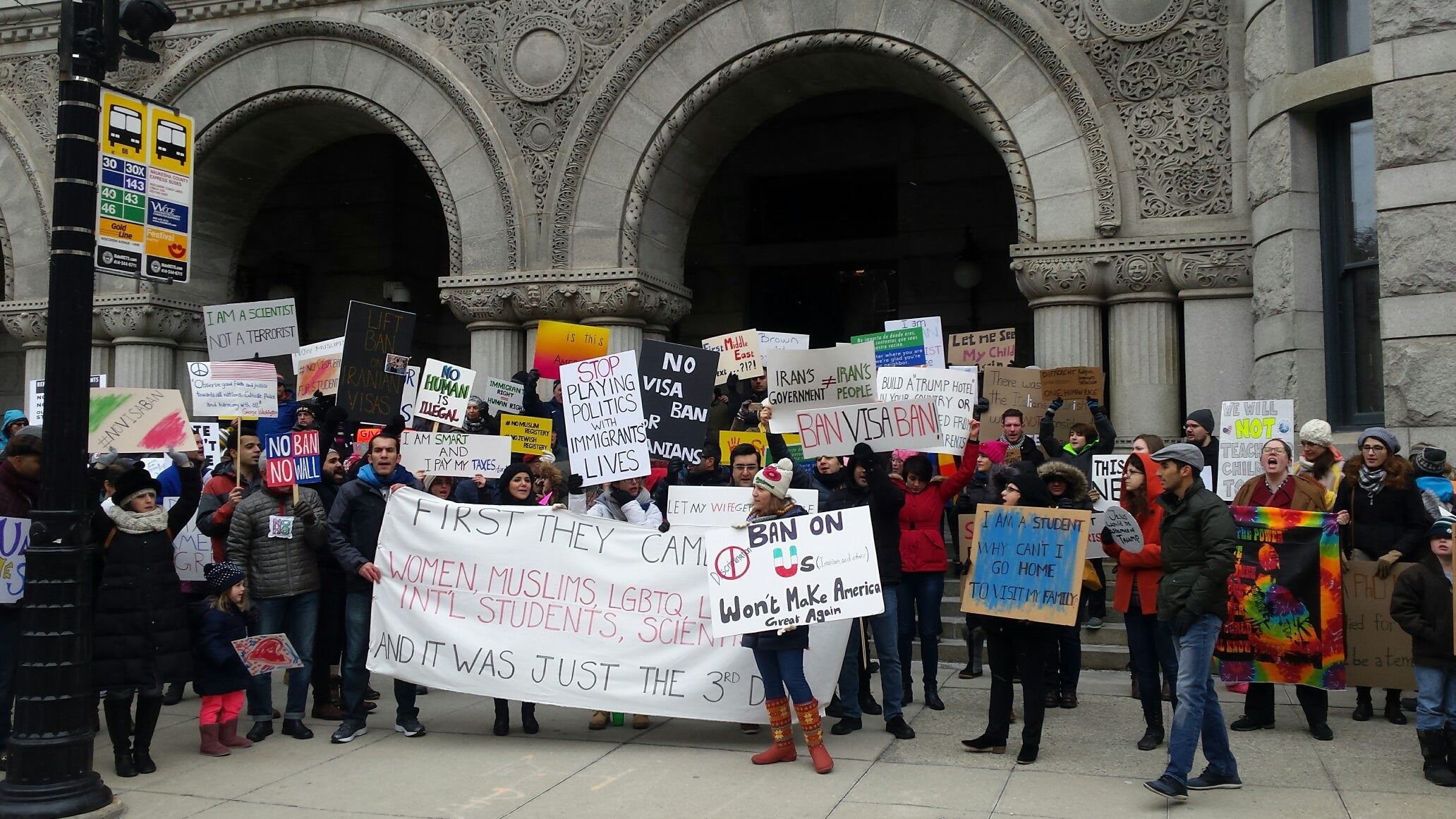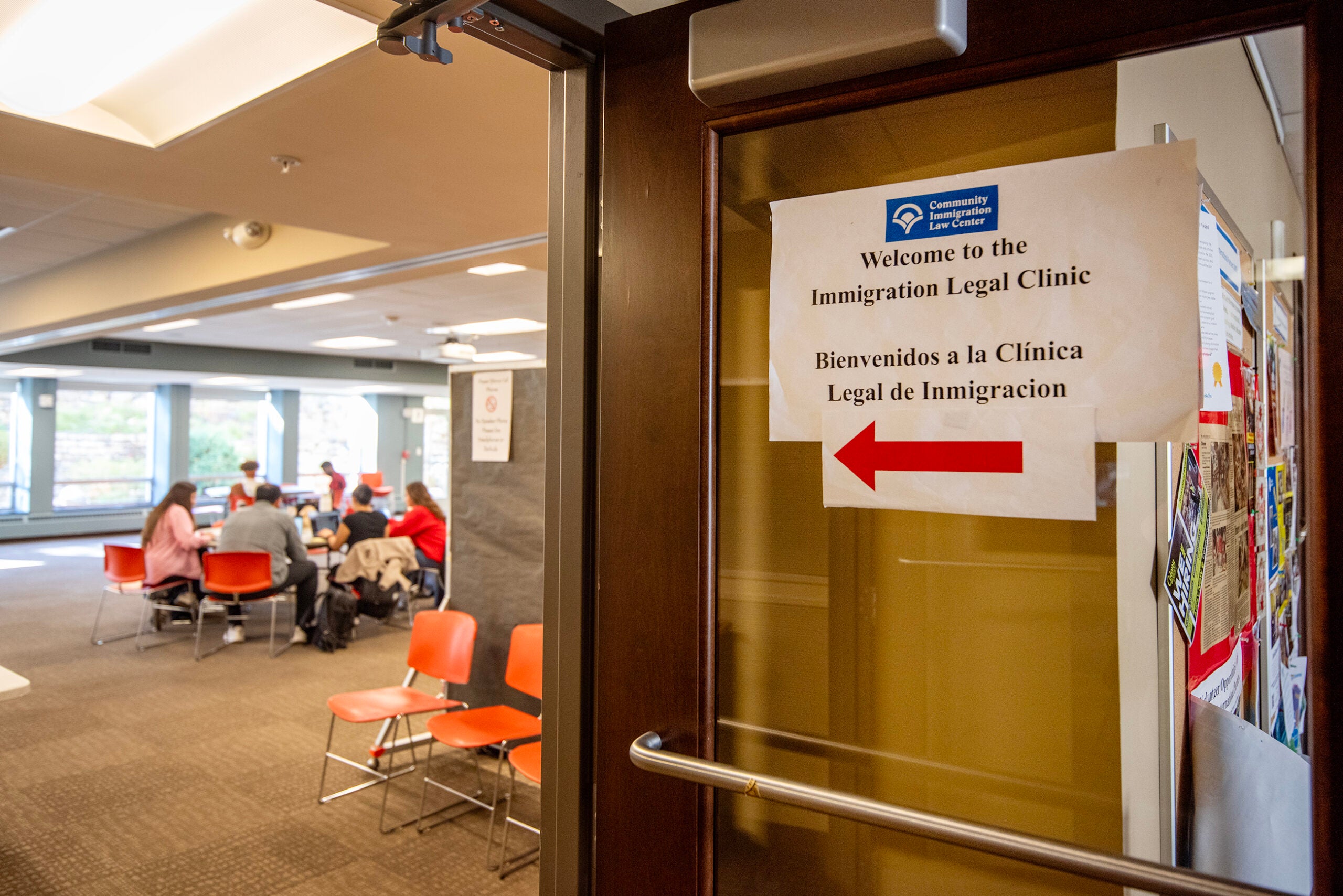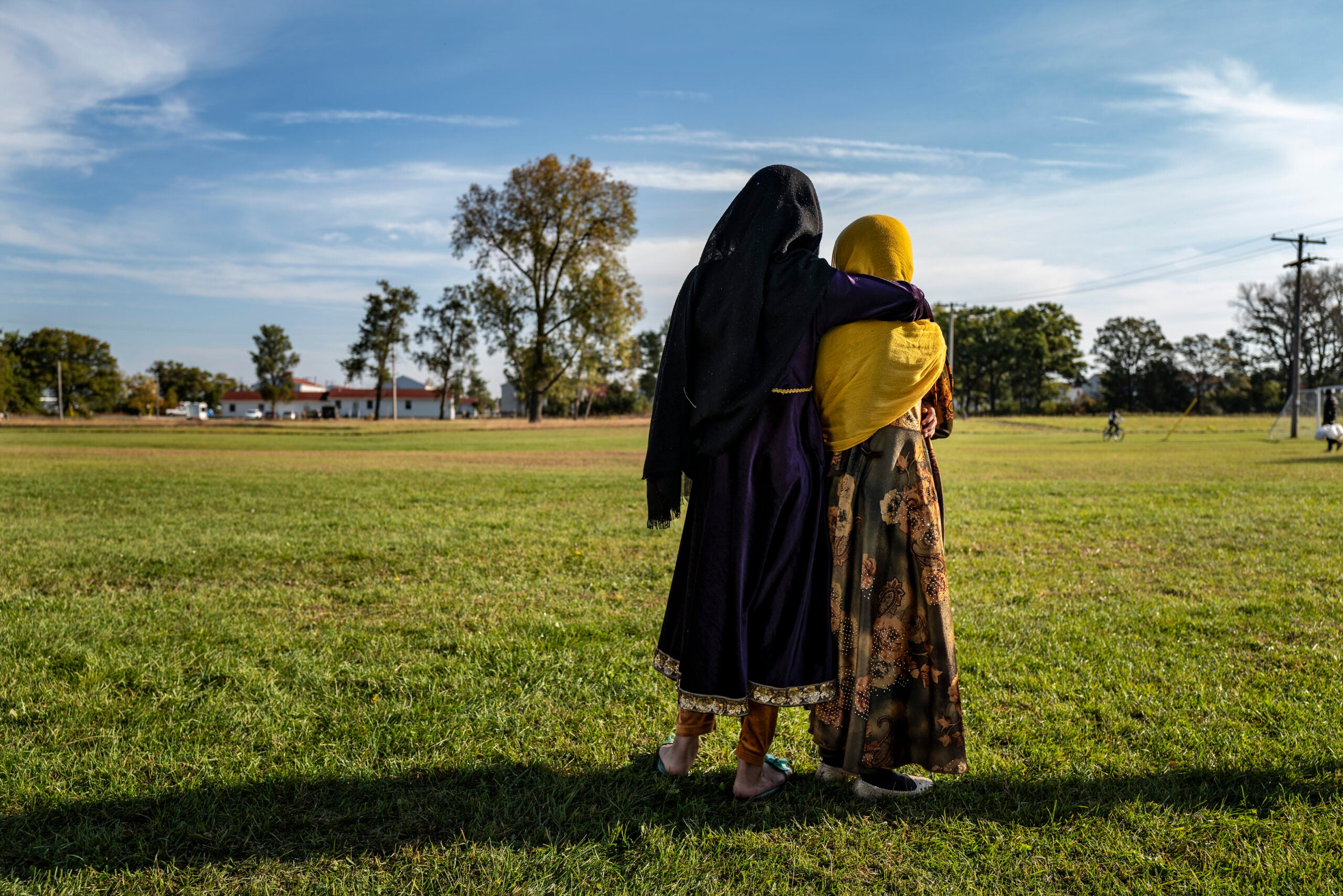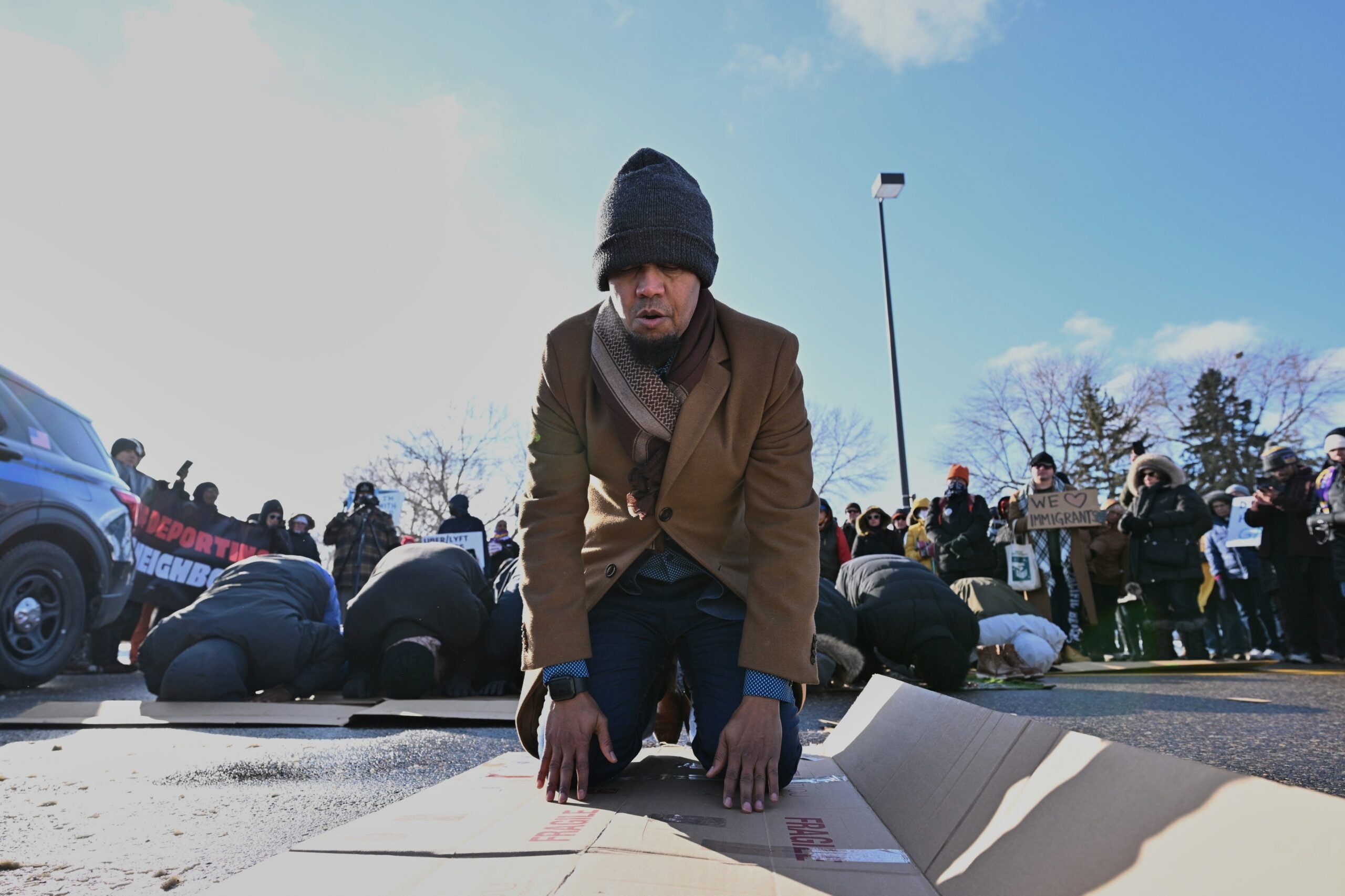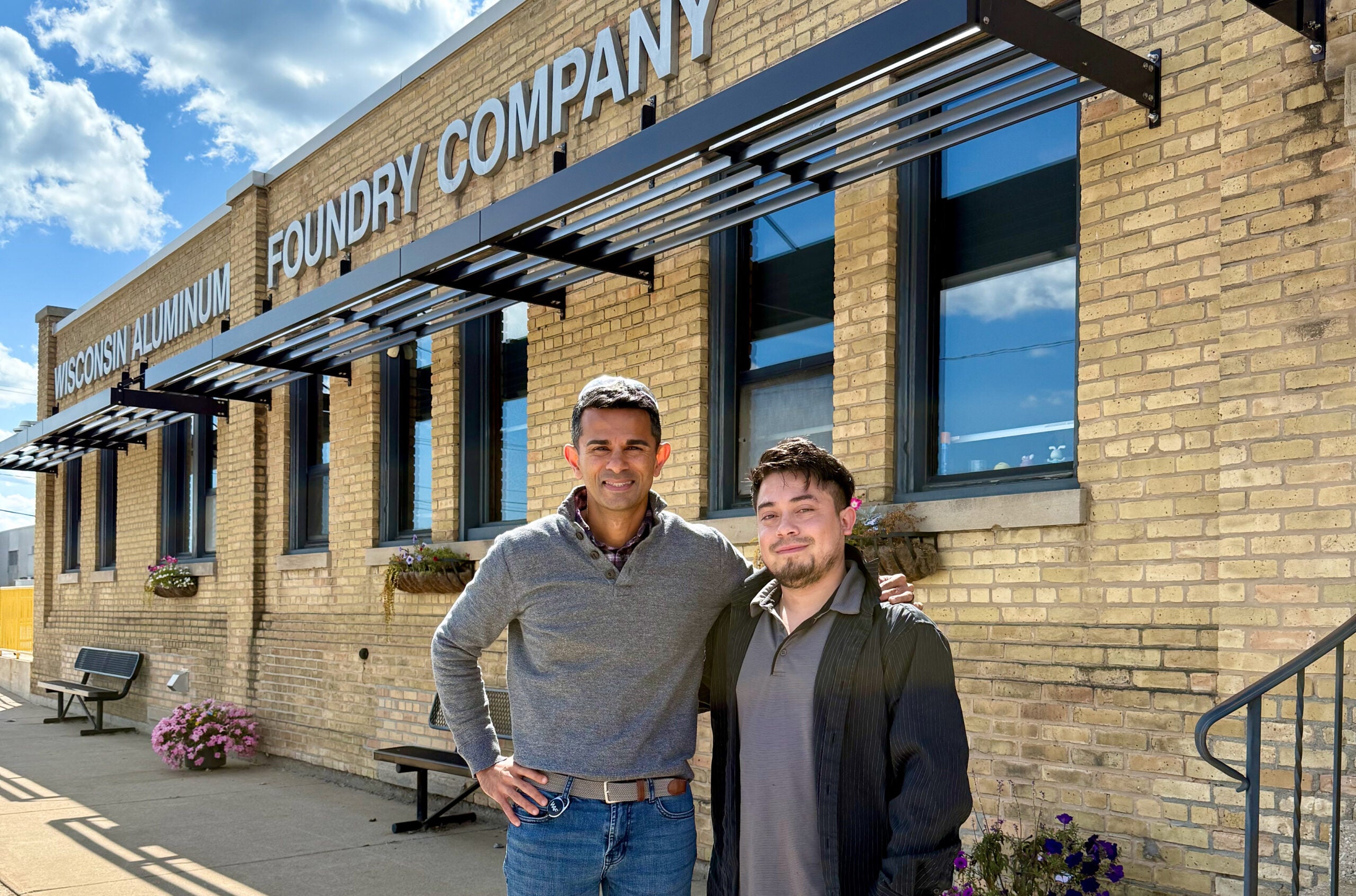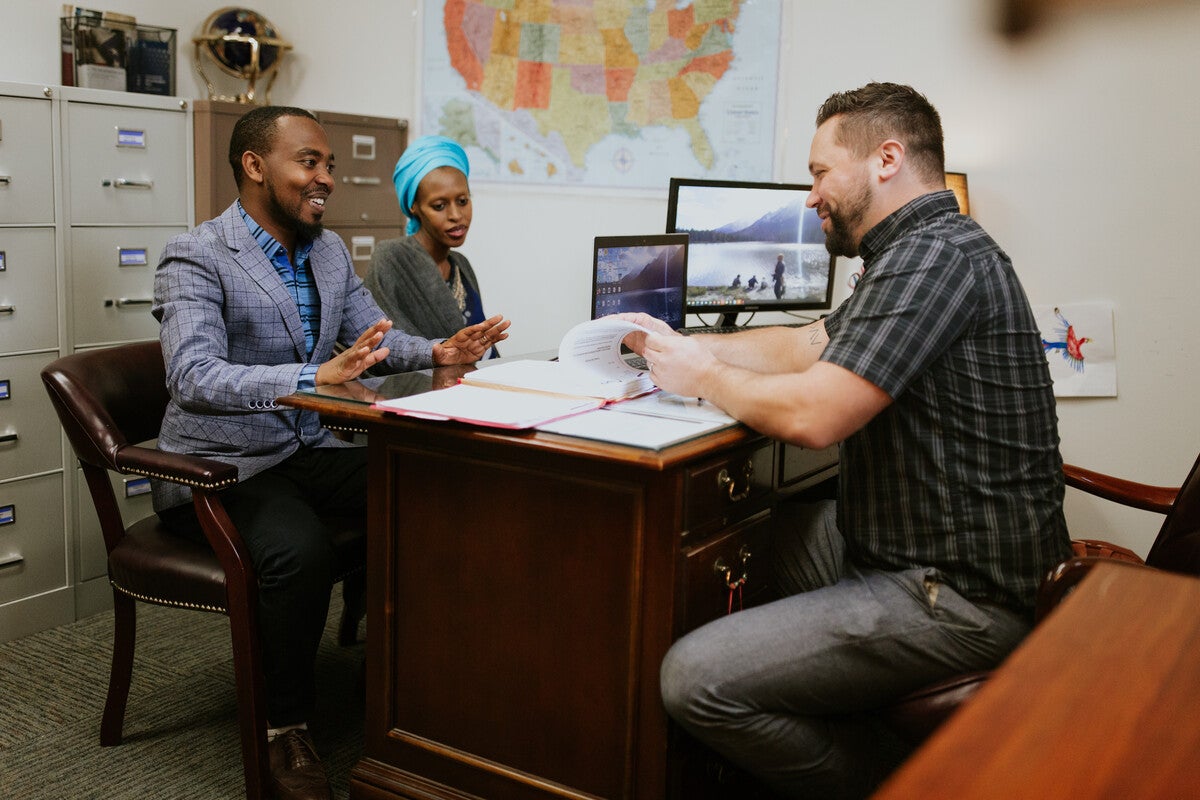President Donald Trump’s temporary immigration freeze is triggering division in Wisconsin with elected officials and residents both defending and criticizing the measure.
Trump’s executive order issued late last week bars all new refugees from entering the United States for four months and citizens from seven largely Muslim countries for three months.
At a town hall meeting Sunday night in Menomonee Falls, Republican U.S. Rep. Jim Sensenbrenner called the order a necessary pause.
News with a little more humanity
WPR’s “Wisconsin Today” newsletter keeps you connected to the state you love without feeling overwhelmed. No paywall. No agenda. No corporate filter.
“This isn’t about religious affiliation. It’s about national security and keeping Americans safe,” Sensenbrenner said. “This is a temporary ban so the government can ensure we have sufficient screening policies in place.”
On Saturday, Sensenbrenner said green-card holders from countries affected by Trump’s order shouldn’t be allowed into the U.S. But on Sunday he reversed course, saying he misspoke and those with green cards should be admitted absent evidence of a threat.
About 125 people packed the room Sunday for the town hall meeting, with dozens more waiting outside. The discussion with the congressman was often contentious, and he warned the crowd about possibly adjourning the session.
On Saturday in downtown Milwaukee, about 150 people protested the president’s order outside the city’s federal courthouse. Demonstrations against the executive occurred over the weekend around the U.S.
Organizer Soroush Aslani, an assistant professor at the University of Wisconsin-Whitewater, is Iranian and lives in the U.S. with a green card. He expressed concern that a three- or four-month freeze on immigration could hurt universities with a strong enrollment of foreign students.
“Because you keep talent out of this country. You put unnecessary limits on collaboration between researchers and graduate students at U.S. universities,” Aslani said.
Aslani called the order discriminatory.
Late in the weekend, the Trump administration seemed to pull back on part of the executive order involving people with green cards. Much of the immigration plan is being challenged in federal court.
Wisconsin Public Radio, © Copyright 2025, Board of Regents of the University of Wisconsin System and Wisconsin Educational Communications Board.

